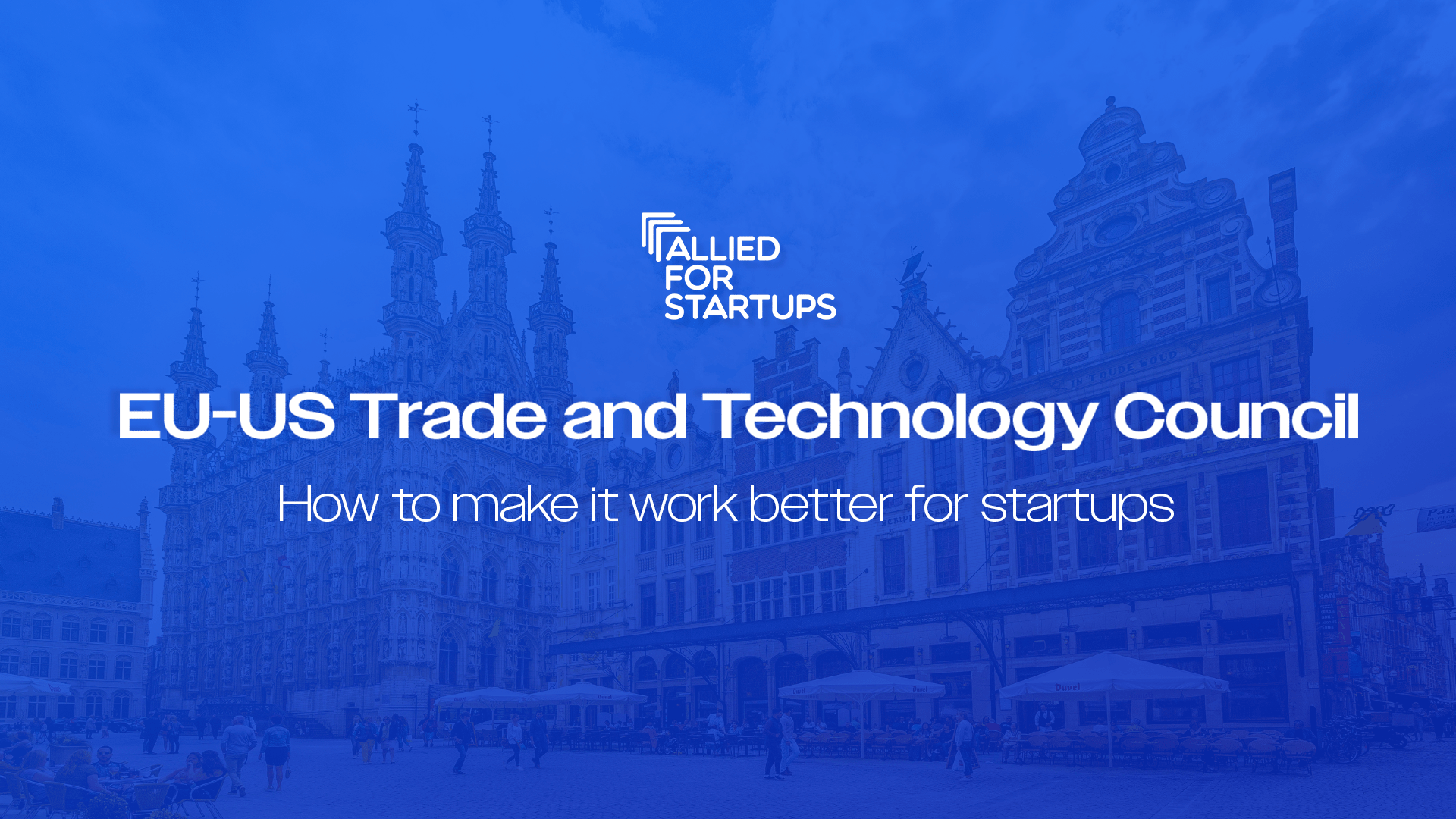How to make the EU-US Trade and Technology Council work better for startups
On 4 April, EU and US officials gathered in Leuven for the sixth ministerial meeting of the EU-US Trade and Technology Council (TTC), the diplomatic forum to coordinate technology and trade policy between the United States and the European Union. Looming over the discussions was the question of whether or not the TTC will be continued after this year’s elections on both sides of the Atlantic. While hailing the transatlantic forum for its achievements and stressing the importance of the TTC’s continuation beyond the elections, officials on both sides agree that a revamp is needed. Allied for Startups passionately supports the continuation of the EU-US TTC, recognising the importance of closer transatlantic tech cooperation. After all, the TTC has proven to be an excellent forum for the EU and the US to work together on tech and trade that creates more alignment that benefits startups. Yet, the TTC indeed would benefit from a makeover and place startups at the centre of the discussions.
Why should startups get more attention?
The TTC aims to ensure that trade and tech serve transatlantic societies and economies, strengthen technological and industrial leadership, and expand bilateral trade and investment. As startups create jobs, promote innovation, and contribute to economic recovery and growth, they are key contributors to achieving these objectives.
Startups are not constrained by established processes and, by nature, experiment with new ideas and disruptive technologies. This way, startups have the unique ability to transform industries. Fostering startup progress, thus helps transatlantic societies and economies benefit from technological innovation. Moreover, startups often help the transfer of technology from R&D to practical applications. They serve as a bridge, transforming research and development into real-world solutions that benefit societies on both sides of the Atlantic. Startups also stimulate a competitive environment that encourages efficiency and productivity by challenging established players which, in turn, strengthens transatlantic technological and industrial leadership. Yet, in the inaugural statement in which the TTC’s objective and scope are outlined, startups are only mentioned once amongst the forum’s target audiences… This is why we think that startups should feature more prominently in the TTC after the elections.
In order to provide startups with a more prominent role in the EU-US TTC discussions, the forum should be made more efficient by cutting the number of working groups. Currently, the TTC consists of 10 working groups while certain topics, such as AI, are being discussed simultaneously in different working groups. This approach bears the risk of unsynchronised outcomes which would harm the creation of a harmonised and efficient transatlantic startup ecosystem. Moreover, stakeholders should be more closely involved in the work of the TTC, allowing them to provide more input and feedback on the activities of the working groups. THis could be achieved by organising more stakeholder events and facilitating a more easily accessible consultation platform. In this manner, an enabling transatlantic startup ecosystem in which startups can directly contribute to meeting the TTC’s main objectives can be created and fostered.
What are the outcomes?
During last week’s meetings, EU and US officials finalised a number of important projects in the framework of the EU-US TTC. First of all, the EU and US announced a partnership for stronger collaboration in 6G development, including on research and standardisation. This way, the transatlantic allies want to work together on setting a global research agenda on the topic and avoid potential dependencies on and interference of third parties in the roll-out of their 6G infrastructures. Following the commitments made in the Joint Roadmap for Trustworthy AI and Risk Management, work also continued on developing an updated list of shared terminologies and taxonomies of AI and the second edition of this list was published during this TTC ministerial meeting. Allied for Startups applauds these achievements that contribute to increased transatlantic alignment that benefits startups on both sides of the Atlantic. We are looking forward to seeing more of these concrete results when the TTC returns after the elections.
What’s next?
As this was the last TTC ministerial meeting before this year’s elections in the EU and the US, it is unclear at this point whether or not the forum will return. Yet, officials from both sides called for a continuation of the transatlantic forum after the elections. Allied for Startups supports the continuation of the EU-US TTC as the forum has proven to be highly valuable, while pointing out the unique and significant contribution startups can make to meeting the format’s objectives.

